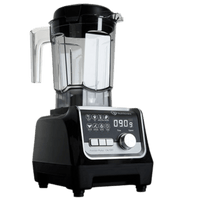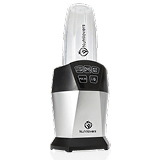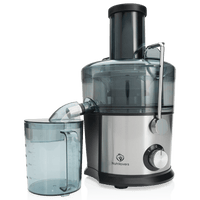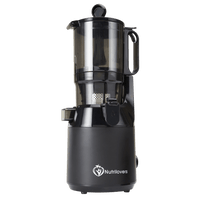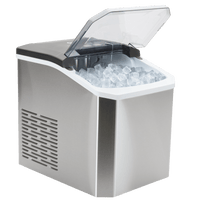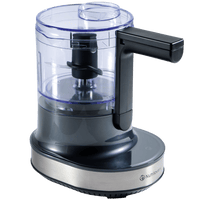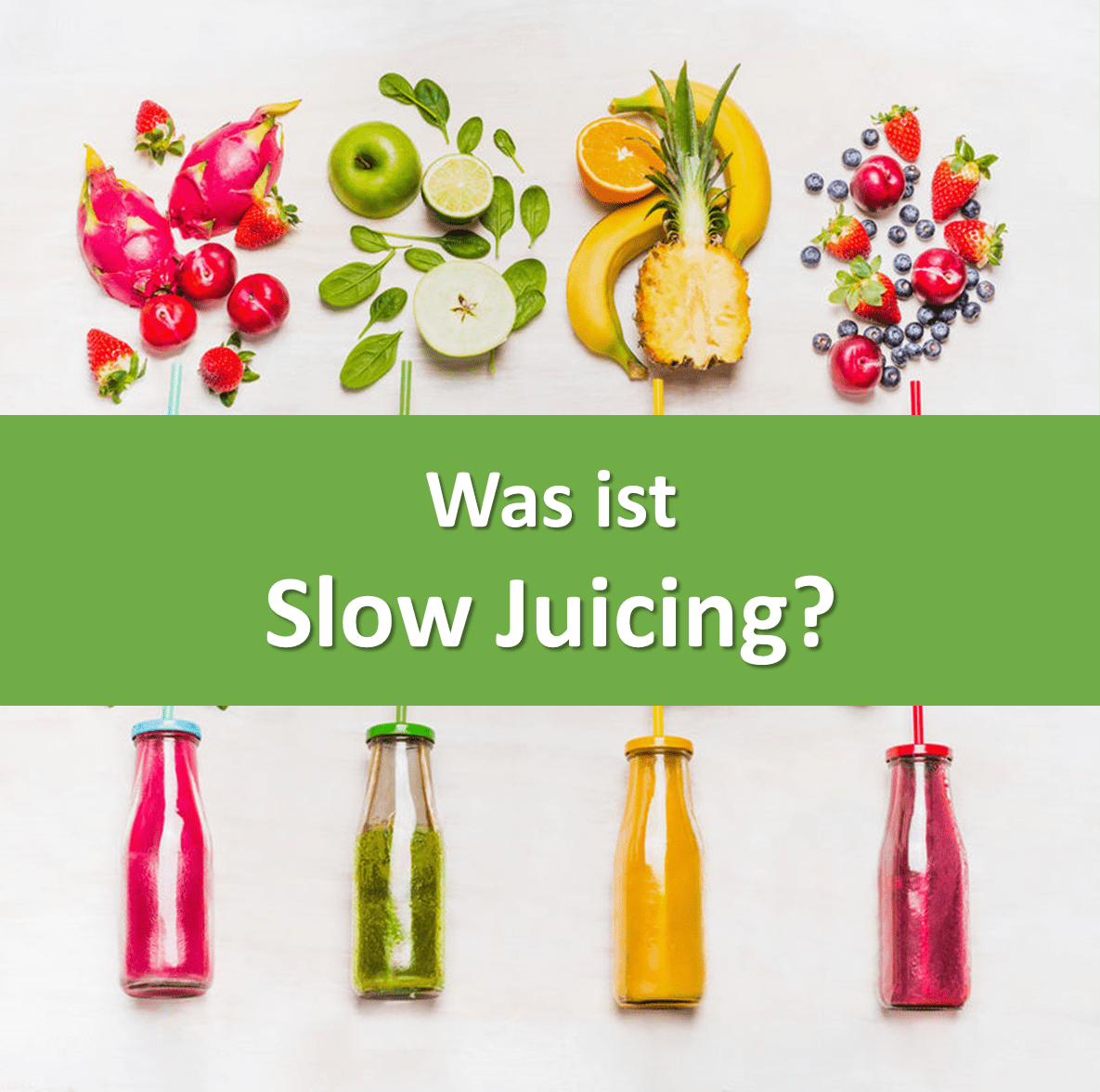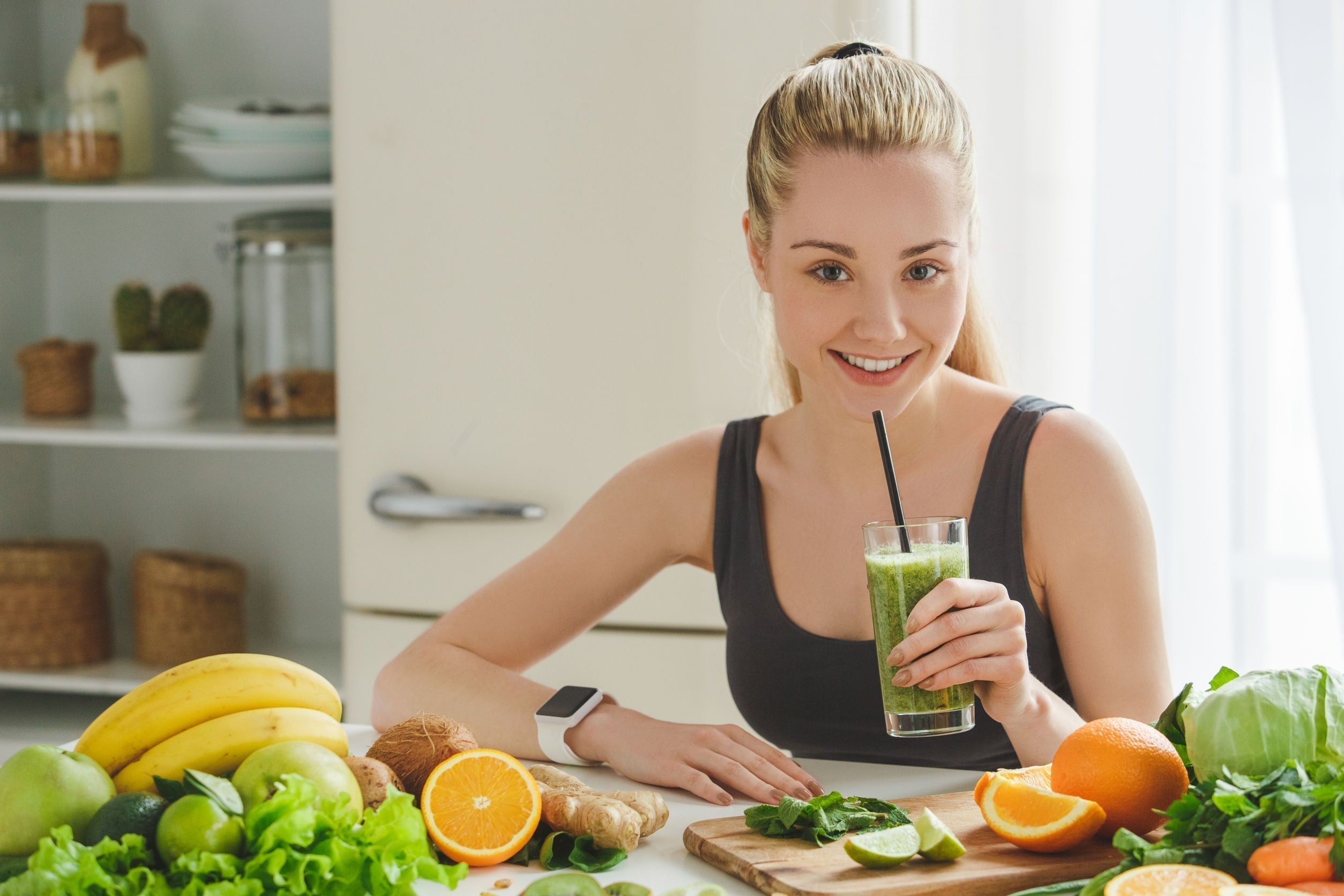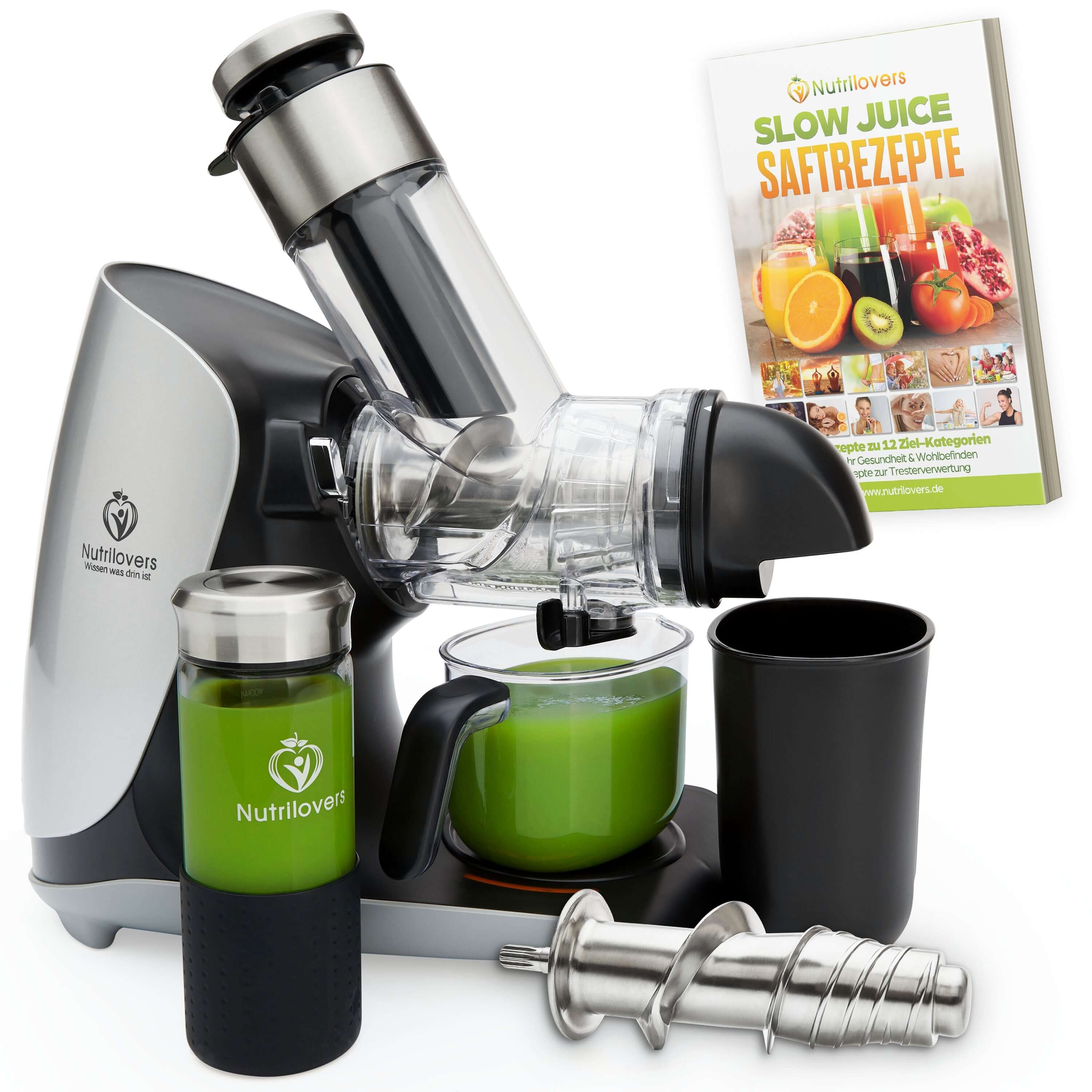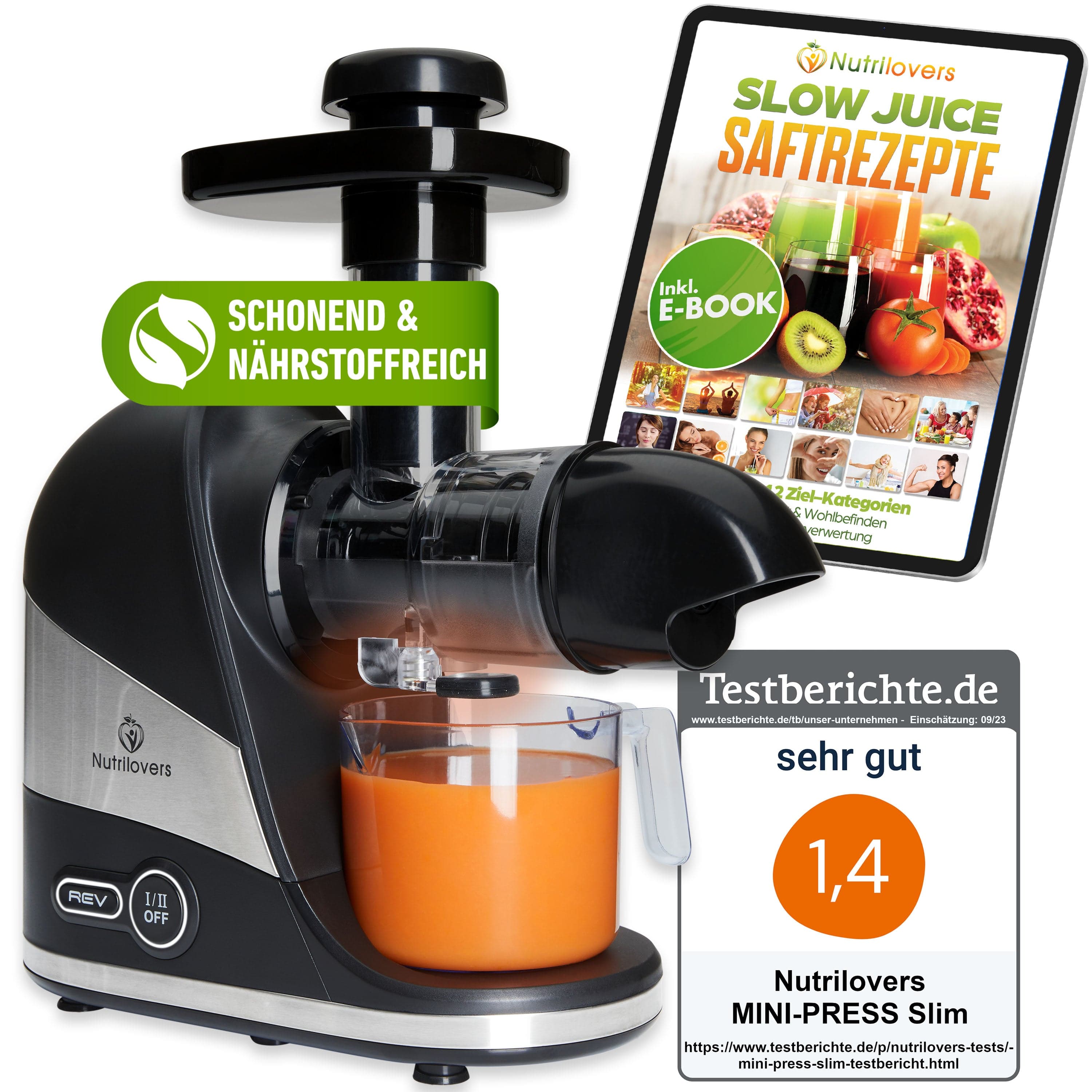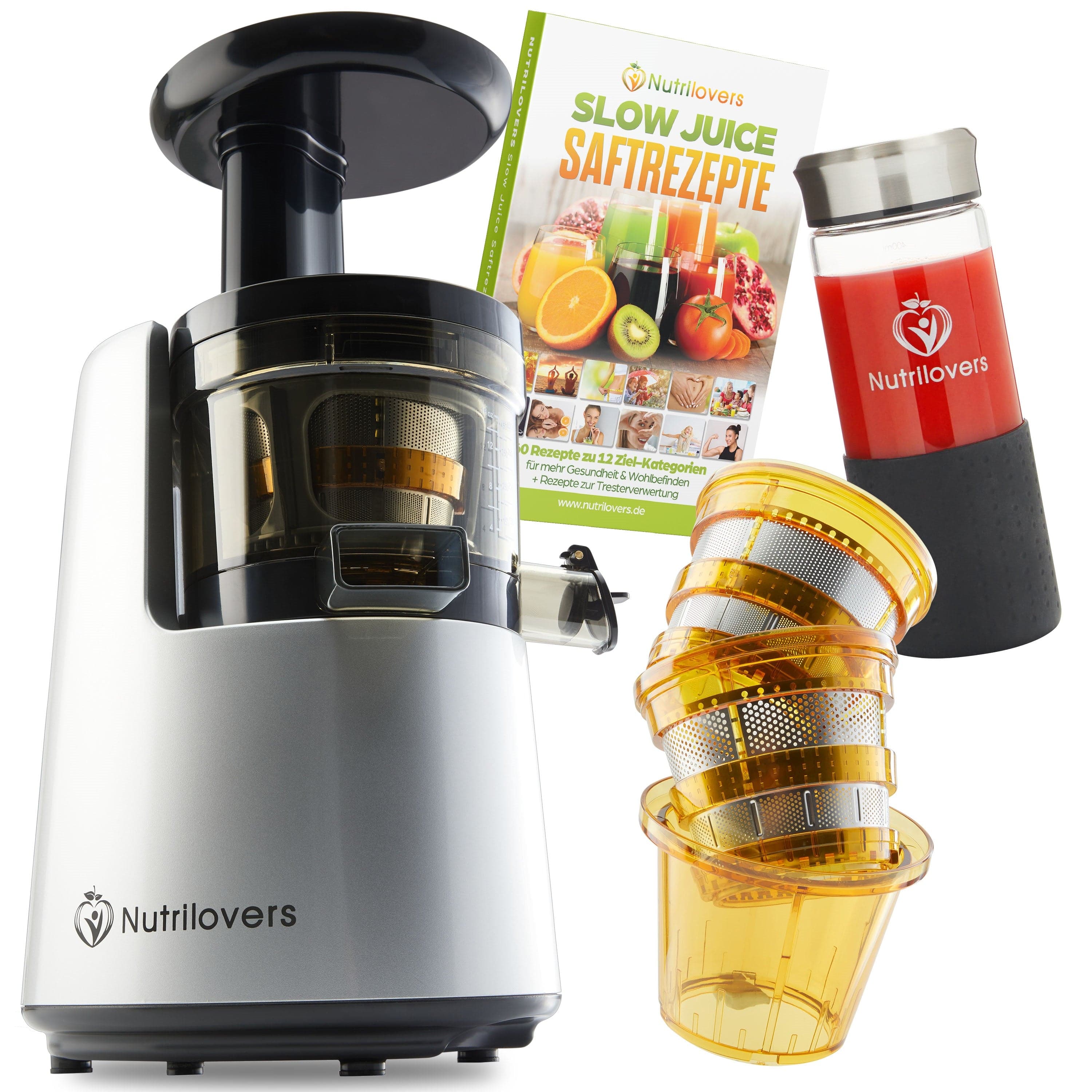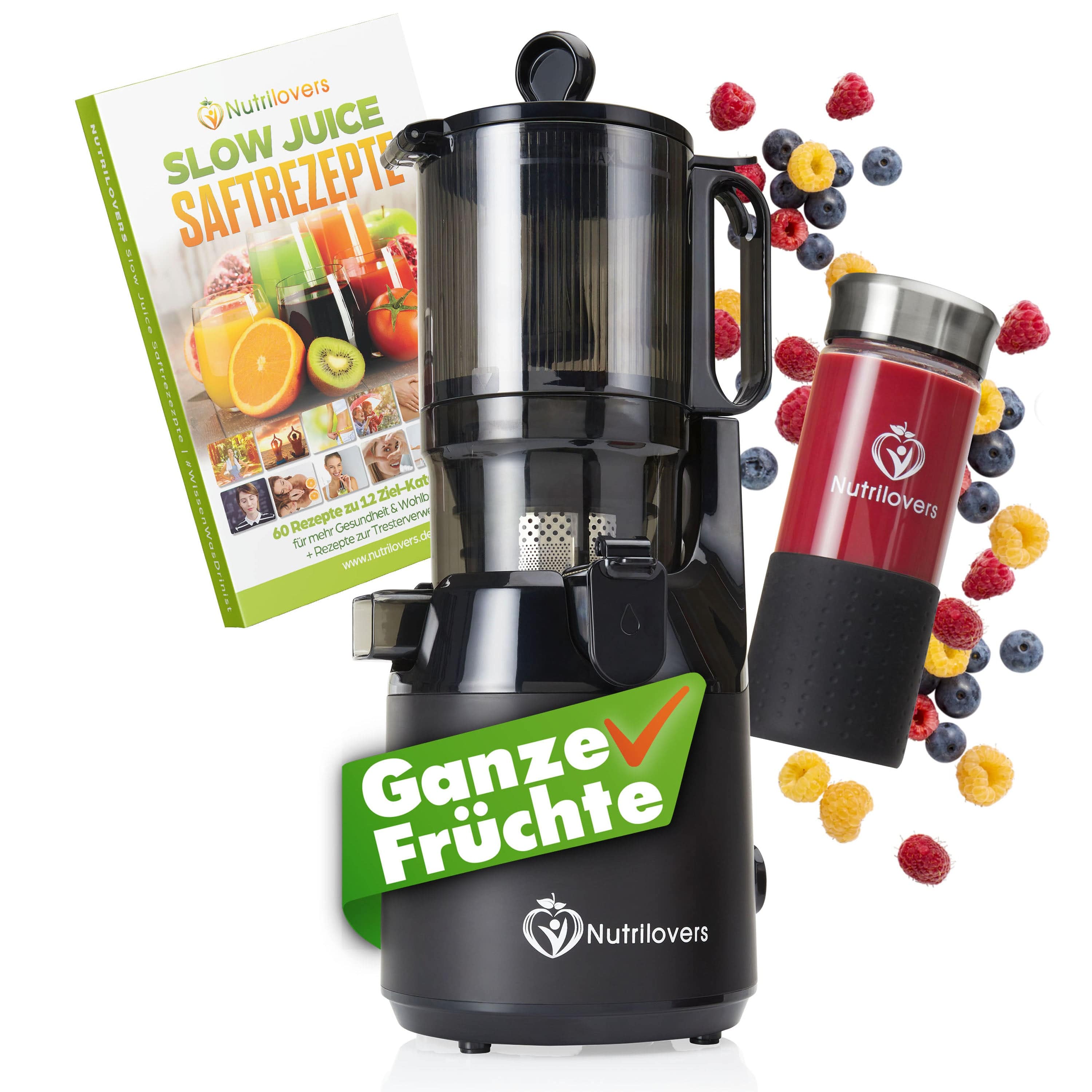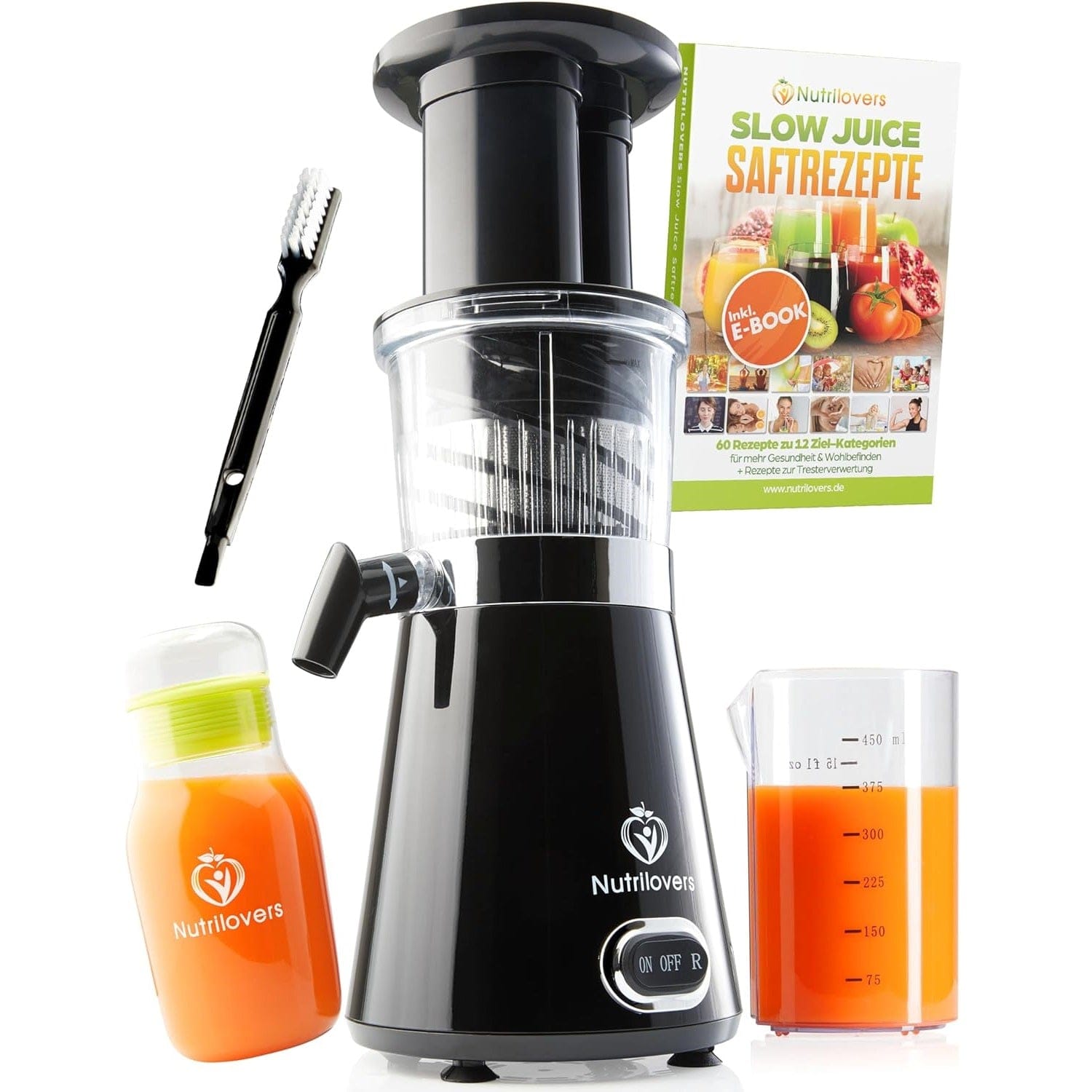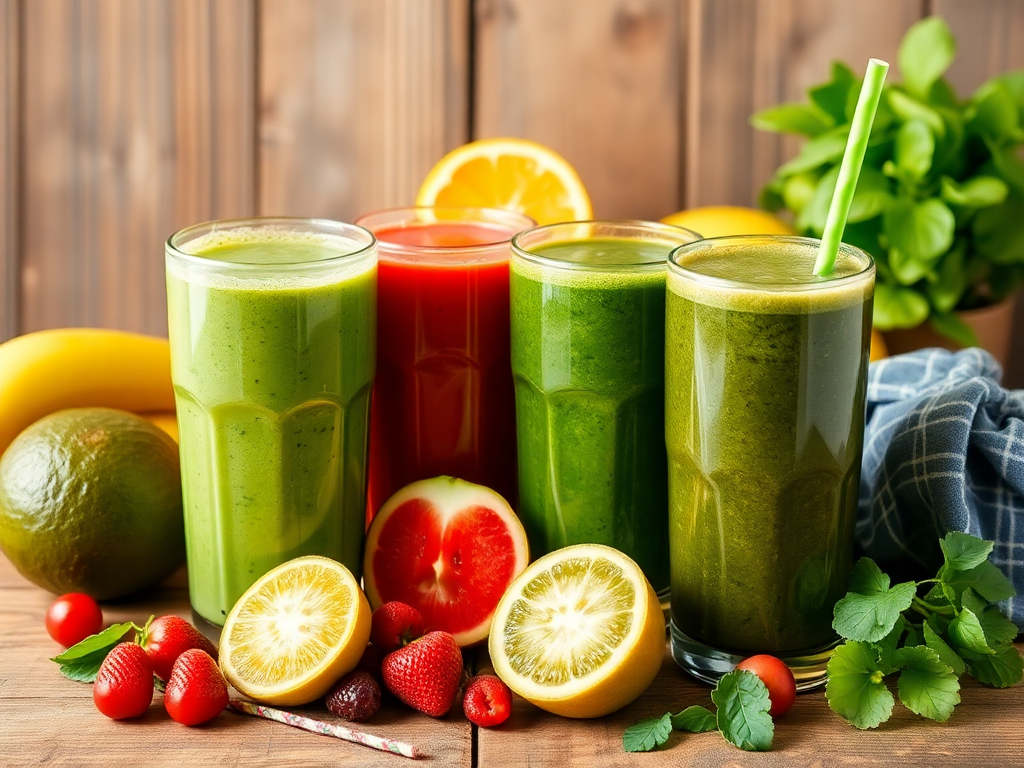Slow juicing is all the rage right now. But what exactly is slow juicing, and how healthy is it really?
How the "slow juice" is made and why it outperforms other juices and smoothies – you'll learn all about it in this article.
What is slow juice?
Slow juicing , or "slow juice," was invented in Thailand and refers to a particularly gentle form of juicing, i.e., the extraction of juice from fruit or vegetables. With this method, the juice is pressed very slowly and gently and, because no heat is generated in the juice, is also referred to as "cold-pressed."
Why is slow juice so healthy?
People often think they're consuming vast amounts of vitamins and nutrients when they drink fresh juice. But it's not that simple. Depending on the method of juice extraction, a significant portion of nutrients and vital substances can be destroyed.
A slow juice is a concentrated load of vitamins, minerals, trace elements, phytochemicals, and antioxidants contained in the fruits and vegetables used in it. The juicing process provides us with these nutrients and minerals in the freshest and fastest way possible, something our bodies would have to undergo in several intermediate steps during the subsequent digestive process.
The plant substances can therefore be absorbed more quickly and better by the body and develop their effectiveness quickly.
Freshly squeezed juice is healthier than the preserved juice from supermarket shelves. Pasteurization at approximately 85°C kills the microorganisms responsible for spoilage, but unfortunately, this also destroys most enzymes and vital nutrients . However, there are important differences in vitamin and mineral content in freshly squeezed juices. The decisive factor is the degree of juicing.
The Secret of Slow Juice
Slow juicing involves neither heat nor oxygen being introduced into the juice. This is what makes it so special. This pressing process preserves all the important nutrients, such as enzymes, vitamins, trace elements, and minerals, in the juice. All you need is a slow juicer, a special electric juicer that presses very slowly and gently, preserving the nutrient content of the juiced product to the maximum.
How does a slow juicer work?
With a slow juicer, the speed and rotation of the auger are crucial. Scientists have observed the chewing motion of the human body and determined that a chewing speed of between 30 and 40 movements per minute is optimal for optimal utilization of nutrients.
Only through this intense chewing motion can the food be properly broken down and salivated. This is precisely the principle behind the slow juicer.
Fruits, vegetables, as well as grasses , herbs, and lettuces, are slowly, gently, and relatively quietly crushed at 40 to 200 revolutions per minute and pressed through a press roller or screw. The cell membranes of the pressed material are gently broken open, releasing the valuable plant compounds and the valuable chlorophyll from green leafy vegetables and grasses. The result is a homogeneous, tastier juice. The pressed material comes into minimal contact with oxygen, which is why the juice doesn't immediately turn brown and can be stored in the refrigerator for up to three days.
Comparison: Centrifugal Juicer vs. Slow Juicer
The only advantage of a centrifugal juicer is the time savings. However, the rapid juicing process is a nutrient killer. The juicer's centrifuge crushes the pulp and expels the liquid, including vitamins, enzymes, and minerals, from the cell walls. Unfortunately, the juice is not only broken down into its components of water and pulp, but is also rapidly oxidized by the high rotation speeds (up to 15,000 rpm) and the circulating oxygen.
Therefore, the juice should be consumed immediately. Longer storage in the refrigerator is not advisable, as the flavor deteriorates quickly and the juice tastes sour after about 12 hours. A slow juicer is therefore clearly the better choice if juice quality is paramount.
CONCLUSION
Slow-pressed juices remain the undisputed number one among healthy beverages and can be safely consumed in all situations. Cold-pressed juices not only impress with their high phytonutrient content, but also offer unsurpassed taste. Slow-pressed fruit and vegetable juices (via slow juicing) are incredibly delicious and offer a wealth of nutrients and vitamins that are good for you and your body.
Our recommendation: Drink a delicious, freshly squeezed slow juice every day and do something good for your body for more health, vitality, and zest for life.
Slow juicing will change your life forever if you integrate the daily ritual of drinking and juicing into your everyday life!


